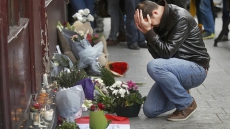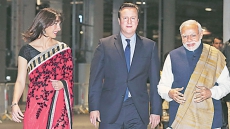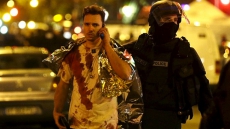As Pakistan Army joins Prime Minister Nawaz Sharif in condemning the Pathankot attack, former Pakistan's foreign minister Khurshid Mahmud Kasuri claims Pakistan Army is on board with Sharif in the new peace effort and a serious dialogue must commence between both the countries.
He suggests a give and take between the two resolve outstanding issues. Excerpts from an email interview with IANS:
Q. What do you make of Prime Minister Narendra Modi's visit to Pakistan?
A. I wholeheartedly welcome the resumption of the dialogue between Pakistan and India. For those trying to understand the immediate motives of the Indian PM's visit to wish PM Nawaz Sharif on his happy birthday, it would be instructive to refer to the recent speech of Indian Minister for External Affairs, Sushma Swaraj that war with Pakistan was not an option. It is not an option for Pakistan either. Her statement is all the more significant because she had developed the reputation of a hardliner on Pakistan.
Another lesson is that simply flexing your military muscles doesn't always win elections. The recent defeat in Bihar elections could be one reason, among many, for PM Modi's sudden and surprising visit.

Q. Can it lead to a dramatic breakthrough in ties?
A. I do expect a serious and a sincere dialogue because Modi has put a lot at stake by his surprising visit to Lahore. I believe that even a dramatic breakthrough cannot be ruled out because the Kashmir framework that Pakistan and India evolved during 2004 to 2007, after detailed negotiations on the back-channels, provides a ready road map for those in charge now.
Q. People in India are asking whether this would lead to less firing across the Line of Control and less cross-border terror attacks on India?
A. I do expect lessening of tensions. I will be surprised if it didn't happen. The efforts during our tenure helped to usher in a period of ceasefire on the LOC in 2003 which lasted for almost 10 years. This is in great contrast to the state of hostilities on the LOC in more recent years. As far as, acts of terrorism in India are concerned, I sympathize with India, particularly, after the recent attack at Pathankot. In fact, we had agreed to an anti-terrorism mechanism in 2006 at Havana. Both countries have now agreed to discuss terrorism at the level of National Security Advisors.
Q. Will any talk between the two without discussing Kashmir bear any positive result?
A. Why should be one scared of dealing with the real issues between India and Pakistan. India has for a long time felt that terrorism needs to be discussed, Pakistan has for a much longer period (almost since independence) felt that Kashmir needs to be resolved. There is no doubt that a large part of the Kashmiri population is unhappy with the current situation. Even leaders like late Mufti Mohammad Sayeed and Mehbooba Mufti of the PDP and President of the National Conference, Omar Abdullah have emphasised that the status of Jammu and Kashmir needed to be resolved by Pakistan, India and the Kashmiris. It would deprive the terrorists of a major propaganda weapon.

Q. Do you think the Modi government's efforts to keep Hurriyat away from talks is a positive thing?
A. I think it is counter-productive. Prime Ministers Vajpayee and Manmohan Singh must have obviously considered it worthwhile when they decided to talk to the APHC (All Parties Hurriyat Conference). We feared that unless we kept them broadly aware of the framework, they could well reject it outright. This would affect Pakistani public opinion very negatively. I have repeatedly indicated in my book 'Neither a Hawk, nor a Dove' that we wanted the Kashmiris to be sitting at the negotiating table. India would not just accept it. Our whole purpose in interacting with Kashmiris was to sound them out regarding the slowly evolving framework in the back channel on Kashmir so that they would not reject the proposals on the grounds that they had not been consulted.
Q. India and Pakistan foreign secretaries are starting talks on January 15th. Do you think without track II initiative, any progress is possible?
A. I strongly believe that civil society and people-to-people contact can play a positive role. If by track II you mean efforts by eminent and experienced citizens of the two countries who have had experience in the past (political, military or administrative spheres), I would wholeheartedly welcome it.
Q. Do you think the Pakistan army is on board with Sharif in the new peace effort, especially in view of the history of Kargil after Vajpayee's initiative?
A. I was not Foreign Minister at the time of Kargil. I recently met somebody who ought to know and who told me that Kargil had actually started before and not after PM Vajpayee's visit, the famous bus yatra, to Lahore. Either PM Nawaz Sharif did not know or if he did, he did not think it was serious enough at the initial stages and may have felt such activities has been going on routinely between Pakistan and India for a long time. Later on ,the scale of Kargil operations surprised the Indian establishment and it may have surprised PM Nawaz Sharif as well.

I would like to say that the time has moved on and Kargil may well have taught both sides some important lessons. The NSA, Lieutenant General (retd) Naseer Khan Janjua, is considered to be very close to current COAS Gen. Raheel Sharif. His appointment is significant and should also remove any doubts that Pakistan Army is, per se, opposed to a serious peace process with India. I have heard reports (from very credible sources) that the meeting in Bangkok was a success and that the two NSAs got along very well indeed.
Q. Do you think it is US pressure was behind Modi's Lahore visit?
A. Pressure may be the wrong word. Persuasion or facilitation may be better words. Both India and Pakistan are very large countries to be pressurised by anybody. Even when Pakistan was a very close ally with US in the 'war on terror' , it defied American pressure on the Iran-India-Pakistan gas pipeline. I have no doubt if Pakistan can withstand US pressure so can India. The US, along with other Western countries, has a strong interest in the stability of Afghanistan. The last thing it would want is a proxy war between Pakistan and India in Afghanistan. The US thus serves its own interests as well in facilitating talks between two countries.

Q. What would be your advice be on the next steps needed to enhance India-Pakistan ties?
A. Unfortunately, in Pakistan and India mature political culture has not been developed yet. Political parties say and do different things when they are in power or in the opposition. I urge both to approach the coming talks not just tactically but strategically. From my experience I can predict that if India gives nothing, Pakistan will give nothing either and the current dialogue process may be short-lived.But if India moves a yard, Pakistan will move even more. There is a lot of low-hanging fruit that could be harvested. The improvement in their relationship can be quite speedy and very dramatic.




